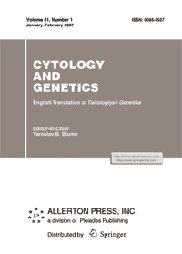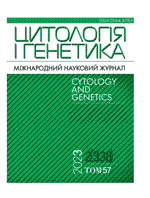The RAD51 gene encodes proteins that are important for the repair of doublestrand DNA breaks by recombination. Thus, genetic variability in the gene may contribute to the occurrence and progression of breast carcinoma. We investigated the association of polymorphisms in the DNA repair genes RAD51site 135G/C with the breast cancer risk. Genotypes were determined by PCRRFLP assays in 55 female patients with breast cancers and 80 agematched healthy controls. Bloods samples were taken from all the patients and health controls and DNA was isolated. The region of interest was amplified based on PCR. After amplification, we used a restriction enzyme (RAD51; MvaI) and digested the PCR product. Then, this DNA fragments were size separated in gel electrophoresis. We identified changes in the nucleotides in these specific regions and confirmed the genotyping via sequencing a subset of PCR products using an Applied Biosystems Automated Sequencer. We observed the both allele and genotype frequencies significantly differed between breast cancer patients and heaty control. The frequency of variant allele, C, was increased to 0.25 in breast cancer group as opposed to the frequency of 0.125 in control group. Similarly, the genotypes carrying the variant allele C (CC+GC) had an elevated frequency and increased odd’s ratio among breast cancer group. The obtained results indicate that the polymorphism of RAD51 genes may be associated with the incidence of breast cancer in the Eastern Mediterranean region population. We hypothesized that common polymorphisms in DNA repair and cell cycle regulator genes modify DNA repair machinery which contribute to breast cancer susceptibility.
Keywords: RAD51 gene, polymorphism, MvaI, breast cancer, eastern Mediterranean, Turkish population

Full text and supplemented materials
References
1. Akisik, E., Yazici, H., and Dalay, N., ARLTS1, MDM2 and RAD51 gene variations are associated with familial breast cancer, Mol. Biol. Rep., 2011, vol. 38, pp. 343–348. https://doi.org/10.1007/s11033-010-0113-3
2. Antoniou, A.C., Sinilnikova, O.M., Simard, J., et al., RAD51 135G→C modifies breast cancer risk among BRCA2 mutation carriers: results from a combined analysis of 19 studies, Am. J. Hum. Genet., 2007, vol. 81, pp. 1186–1200. https://doi.org/10.1086/522611
3. Bennett, I.C., Gattas, M., and Teh, B.T., The genetic basis of breast cancer and its clinical implications, Aust. N. Z. J. Surg., 1999, vol. 69, pp. 95–105. https://doi.org/10.1046/j.1440-1622.1999.01515.x
4. Bray, F., Ferlay, J., Soerjomataram, I., et al., Global cancer statistics 2018: GLOBOCAN estimates of incidence and mortality worldwide for 36 cancers in 185 countries, CA Cancer J. Clin., 2018, vol. 68, pp. 394–424. https://doi.org/10.3322/caac.21492
5. Cetinkunar, S., Gok, I., Celep, R.B., et al., The effect of polymorphism in DNA repair genes RAD51 and XRCC2 in colorectal cancer in Turkish population, Int. J. Clin. Exp. Med., 2015, vol. 8, p. 2649.
6. Cheng, D., Shi, H., Zhang, K., et al., RAD 51 gene 135G/C polymorphism and the risk of four types of common cancers: a meta-analysis, Diagn. Pathol., 2014, vol. 9, p. 18.
7. Coskun, T., Kosova, F., Ari, Z., et al., Effect of oncological treatment on serum adipocytokine levels in patients with stage II-III breast cancer, Mol. Clin. Oncol., 2016, vol. 4, pp. 893–889. https://doi.org/10.3892/mco.2016.8157
8. Debies, M.T. and Welch, D.R., Genetic basis of human breast cancer metastasis, J. Mammary Gland Biol. Neoplasia, 2001, vol. 6, pp. 441–451.
9. Galkin, V.E., Esashi, F., Yu, X., et al., BRCA2 BRC motifs bind RAD51–DNA filaments, Proc. Natl. Acad. Sci. U. S. A., 2005, vol. 102, pp. 8537–8542. https://doi.org/10.1073/pnas.0407266102
10. Gao, L.-B., Pan, X.-M., Li, L.-J., et al., RAD51 135G/C polymorphism and breast cancer risk: a meta-analysis from 21 studies, Breast Cancer Res. Treat., 2011, vol. 125, pp. 827–835.
11. Gok, I. and Ozden, O., Examination of RAD51 gene G135C polymorphism in gastric cancer patients in northeastern Anatolia, Arch. Biol. Sci., 2019, vol. 71, pp. 209–213. https://doi.org/10.2298/ABS181121002G
12. Gok, I., Ucar, F., Ozgur, O., et al., CARD15 gene 3020insC mutation with inflammatory bowel diseases patients in the black sea region of Turkey, Maced. J. Med. Sci., 2014, vol. 7, pp. 215–218. https://doi.org/10.3889/mjms.1857-5773.2014.0406
13. Gonzalez, R., Silva, J.M., Dominguez, G., et al., Detection of loss of heterozygosity at RAD51, RAD52, RAD54 and BRCA1 and BRCA2 loci in breast cancer: pathological correlations, Br. J. Cancer, 1999, vol. 81, p. 503.
14. Gültekin, M. and Boztaş, G., TüRkiye Kanser Istatistikleri, Sağlık Bakanl Türkiye Halk Sağlığı Kurumu, 2014, 43 p.
15. Krupa, R., Sliwinski, T., Wisniewska-Jarosinska, M., et al., Polymorphisms in RAD51, XRCC2 and XRCC3 genes of the homologous recombination repair in colorectal cancer—a case control study, Mol. Biol. Rep., 2011, vol. 38, pp. 2849–2854. https://doi.org/10.1007/s11033-010-0430-6
16. Nissar, S., Baba, S.M., Akhtar, T., et al., RAD51 G135C gene polymorphism and risk of colorectal cancer in Kashmir, Eur. J. Cancer Prev., 2014, vol. 23, pp. 264–268. https://doi.org/10.1097/CEJ.0000000000000049
17. Pharoah, P.D., Dunning, A.M., Ponder, B.A., et al., Association studies for finding cancer- susceptibility genetic variants, Nat. Rev. Cancer, 2004, vol. 4, p. 850.
18. Richardson, C., RAD51, genomic stability, and tumorigenesis, Cancer Lett., 2005, vol. 218, pp. 127–213.https://doi.org/10.1016/j.canlet.2004.08.0099
19. Romanowicz-Makowska, H., Samulak, D., Michalska, M., et al., RAD51 gene polymorphisms and sporadic colorectal cancer risk in Poland, Pol. J. Pathol., 2012, vol. 63, pp. 193–198. https://doi.org/10.5114/PJP.2012.31505
20. Shimizu, H., Ross, R.K., Bernstein, L., et al., Cancers of the prostate and breast among Japanese and white immigrants in Los Angeles County, Br. J. Cancer, 1991, vol. 63, p. 963. https://doi.org/10.1038/bjc.1991.210
21. Smith, C.A.B., Measures of homozygosity and inbreeding in populations, Ann. Hum. Genet., 1974, vol. 37, pp. 377–391. https://doi.org/10.1111/j.1469-1809.1974.tb01844.x
22. Society AC, Breast Cancer Facts and Figures 2017–2018, American Cancer Society Atlanta, GA, 2017.
23. Stratton, M.R. and Rahman, N., The emerging landscape of breast cancer susceptibility, Nat. Genet., 2008, vol. 40, p. 17.https://doi.org/10.1038/ng.2007.53
24. Wang, W.W., Spurdle, A.B., Kolachana, P., et al., A single nucleotide polymorphism in the 5′ untranslated region of RAD51 and risk of cancer among BRCA1/2 mutation carriers, Cancer Epidemiol. Prev. Biomark., 2001, vol. 10, pp. 955–960.
25. Wick, W., Petersen, I., Schmutzler, R.K., et al., Evidence for a novel tumor suppressor gene on chromosome 15 associated with progression to a metastatic stage in breast cancer, Oncogene, 1996, vol. 12, pp. 973–978.
26. Wu, S., Powers, S., Zhu, W., et al., Substantial contribution of extrinsic risk factors to cancer development, Nature, 2016, vol. 529, p. 43.
27. Yoshikawa, K., Ogawa, T., Baer, R., et al., Abnormal expression of BRCA1 and BRCA1-interactive DNA-repair proteins in breast carcinomas, Int. J. Cancer, 2000, vol. 88, pp. 28–36. https://doi.org/10.1002/1097-0215(20001001)88:1<28::AID-IJC5>3.0.CO;2-4
28. Zabaleta, J., Schneider, B.G., Ryckman, K., et al., Ethnic differences in cytokine gene polymorphisms: potential implications for cancer development, Cancer Immunol. Immunother., 2008, vol. 57, pp. 107–114. https://doi.org/10.1007/s00262-007-0358-4
29. Zhou, G.-W., Hu, J., Peng, X.-D., et al., RAD51 135G>C polymorphism and breast cancer risk: a meta-analysis, Breast Cancer Res. Treat., 2011, vol. 125, pp. 529–535. https://doi.org/10.1007/s10549-010-1031-8
